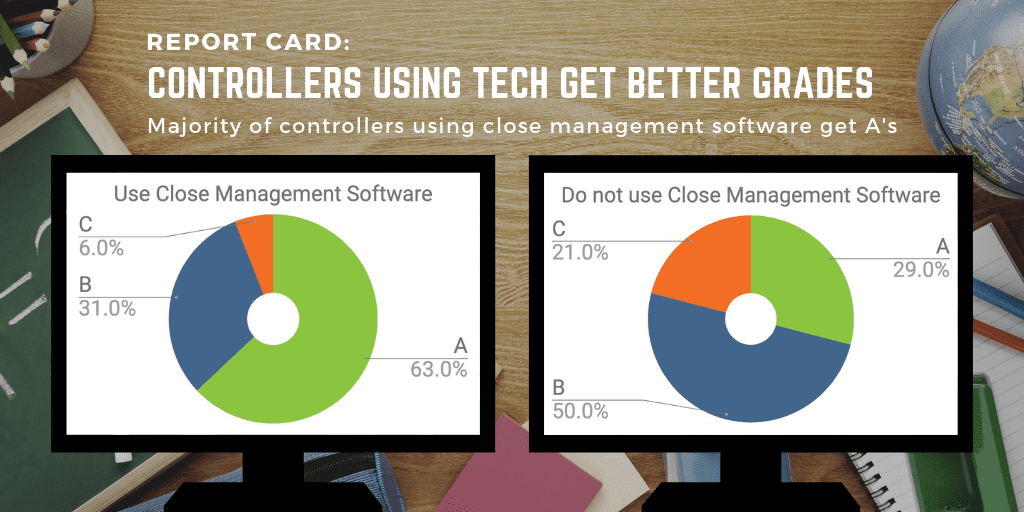
Blog -




Accounting
Report Card: Controllers Using Close Management Software Get Better Grades

A recent survey of financial professionals concluded that controllers using close management software are perceived by their colleagues as better prepared than those who don’t.
If you could grade your controller, what would you give them?
Overly hands-on, but effective? Perhaps an A-minus? More of a “big picture” type who is great at delegating but also scatter-brained, forcing the close team to stay late on a regular basis? That’s definitely a B.
In a recently-published survey of over 300 financial professionals, respondents were asked to grade the controllers they worked with based on their ability to keep up with the position’s evolving expectations and added responsibilities. The study found it abundantly clear that controllers actively using technology to manage their teams received higher scores than their peers.
In the study, conducted by Dimensional Research and sponsored by FloQast, 25 percent of controllers using close management software received A+ grades, with a further 38 percent getting A’s, and B+ marks representing 28 percent. That’s one heck of a grade point average (at least to me, someone who never sniffed a 4.0 after middle school).
Technology’s efficacy isn’t exactly breaking news, but the lack of technology and its impact on all members of the team is what was best illustrated in the survey. Perhaps unsurprisingly, controllers relying on traditional manual processes didn’t fare so well, at least according to their colleagues.
Exactly zero controllers whose teams operated without close management software received A+ grades, with only 29 percent receiving A’s, according to the survey. Though an age-old saying states “Though it may pay to get A’s, C’s get degrees,” might be true, receiving a C — which 21 percent of controllers not using close management software received from the people who work under them — isn’t the cause for celebration it might have been when I turned in my 69.9 percent in Geometry to my doting parents when I was 15.


